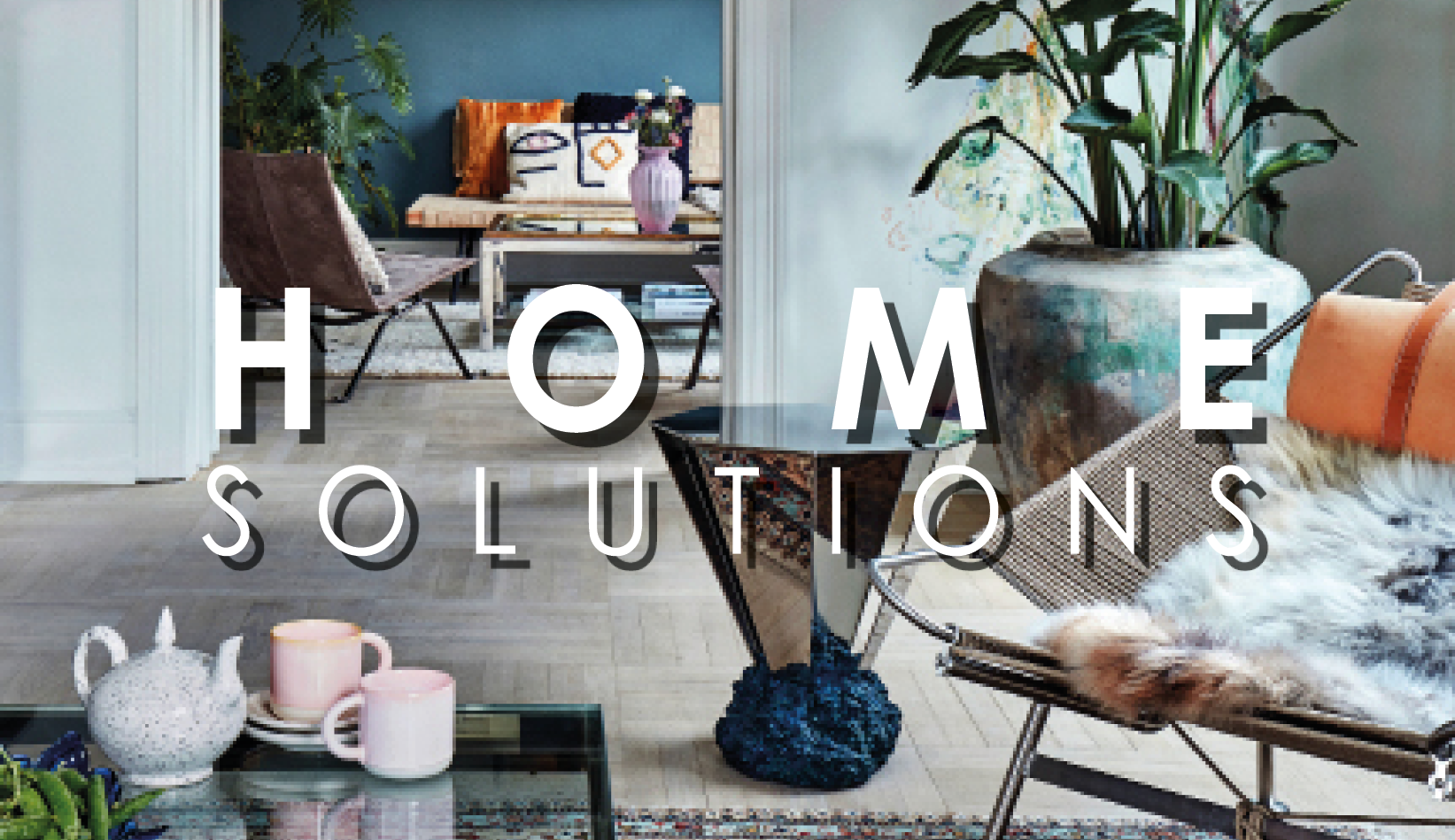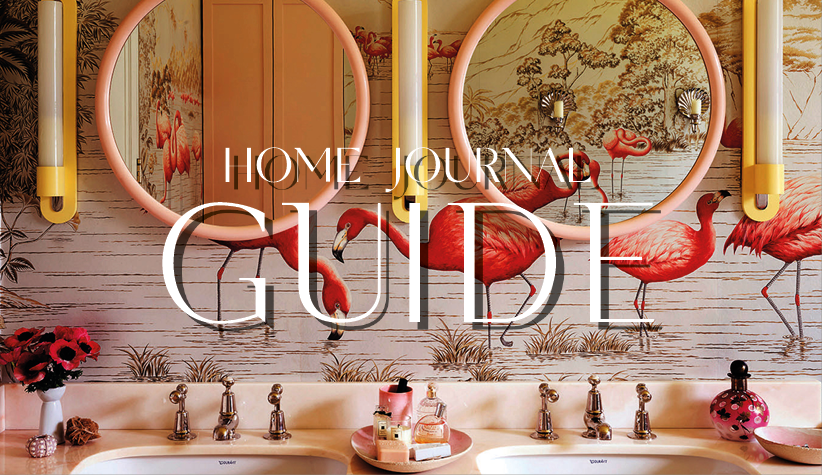Always admired effortlessly elegant and stylish French interiors?
We ask three industry insiders to share their Little Black Book when it comes to French taste and style. Read on as they reveal tried-and-true tips on enhancing the look and feel of your home with the use of colour, vintage finds, and couture table settings.
Catherine Bourquin

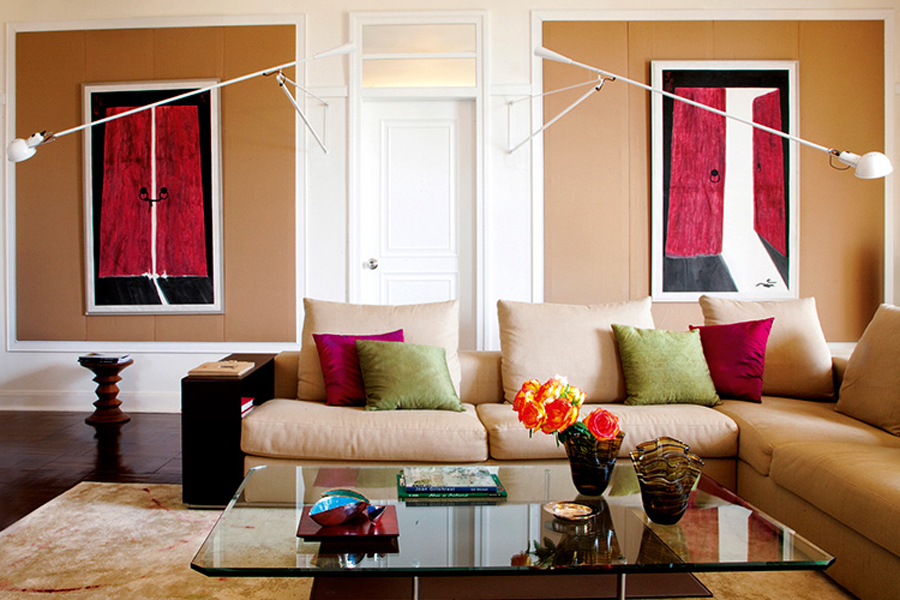
Image: One of Atelier B's projects, courtesy of the author
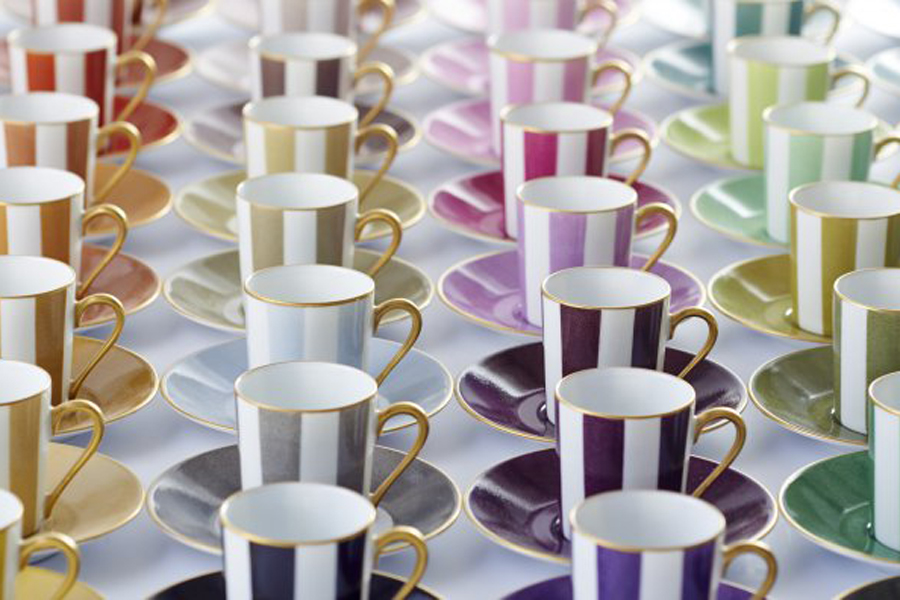
Crystal clear: Crystal and glassware work wonders in adding a touch of je ne sais quoi to both classical and contemporary interiors. A collection of antique Baccarat, Saint-Louis, and 18th-century glass imbues a space with instant chic. Every year when I visit Paris, I pay a visit to my favourite antique crystal and glass store at the flea market, where I pick up something for clients and myself. I have now amassed a special and eclectic collection of mismatched stemware that I love looking at, drinking out of, and serving wine to my friends in!
Mix it up: Be brave and mix old with new, Asian with French, rough with delicate. Contrasts create visual and sensual impact, and showcase your character and individual style.
Image: Porcelain by Marie Daage, courtesy of author
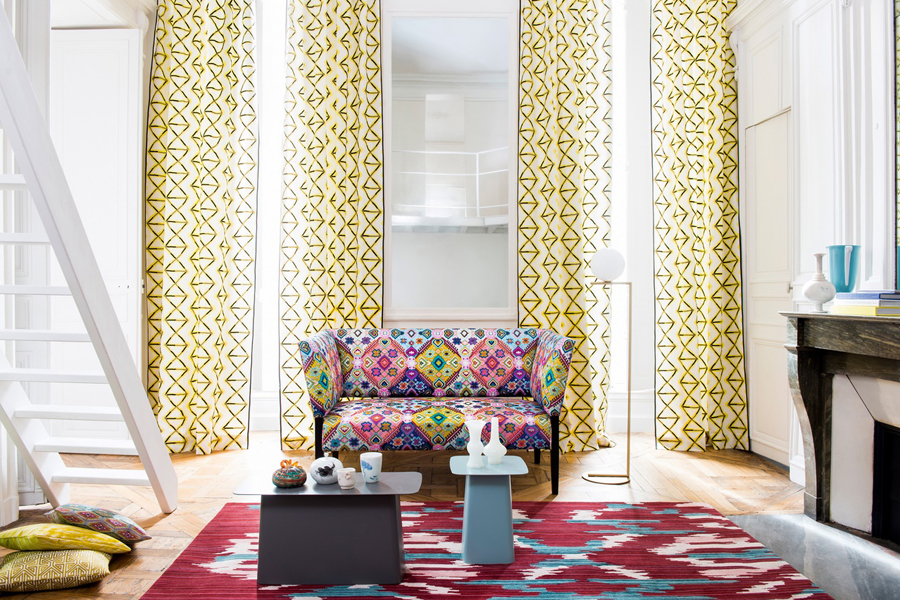
André Arbus: The son of a cabinetmaker, I have grown to love his timeless sculptural furniture creations, sense of proportion, and attention to detail. It was an acquired taste for me; my father-in-law was a decorator, and used to work for Arbus in Paris, and it was he who transmitted his love and passion for Arbus to me, as he had quite the collection of Arbus furniture at his home! I also love his carpet designs, which are often reproduced and featured in many 21st-century interiors.
Pierre Frey: La Maison Frey is one of France’s preeminent fabric designers and manufacturers, and is known for producing the most eclectic, colourful, and sensual fabrics. Pierre Frey is a member of the exclusive Comité Colbert, an association of French luxury brands that take pride in preserving and maintaining the standards and patrimony of French luxury heritage.
Christian Liaigre: I love his more architectural interiors that still manage to prioritise comfort, le bien-être, and the engagement of all our senses. His colour and material palette is fairly minimalistic, but his work embodies a contrast of epochs and styles. For example, in many of his clean and contemporary interiors, we see a dash of the unexpected through an ornate Chinese cabinet, or a Louis XV chair.
Marie Daâge: One of the first contemporary designers to combine contrasting colours and designs in table settings. Her eponymous company produces hand-painted, bespoke Limoges porcelain. In the 18th century, people already started 'mixing it up' at the table with mismatched plates and crystal wares. When ordering dinner sets for clients, she strongly recommends ordering from different collections and colourways, so that you always have options to play around with when setting up your dinner table.
Image: Pierre Frey fabrics, courtesy of Pierre Frey
See more: How Yves Delorme Couture preserves French heritage through its luxury linens
Eve Mercier
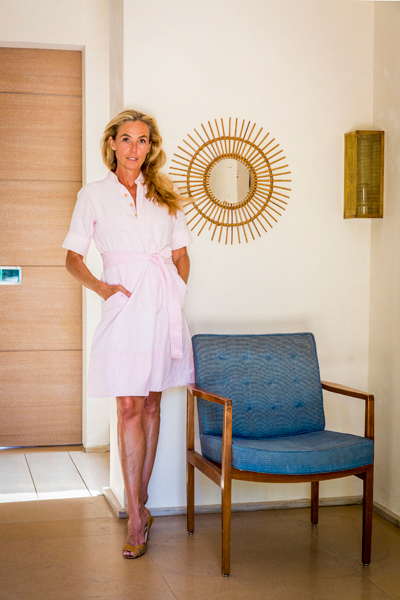
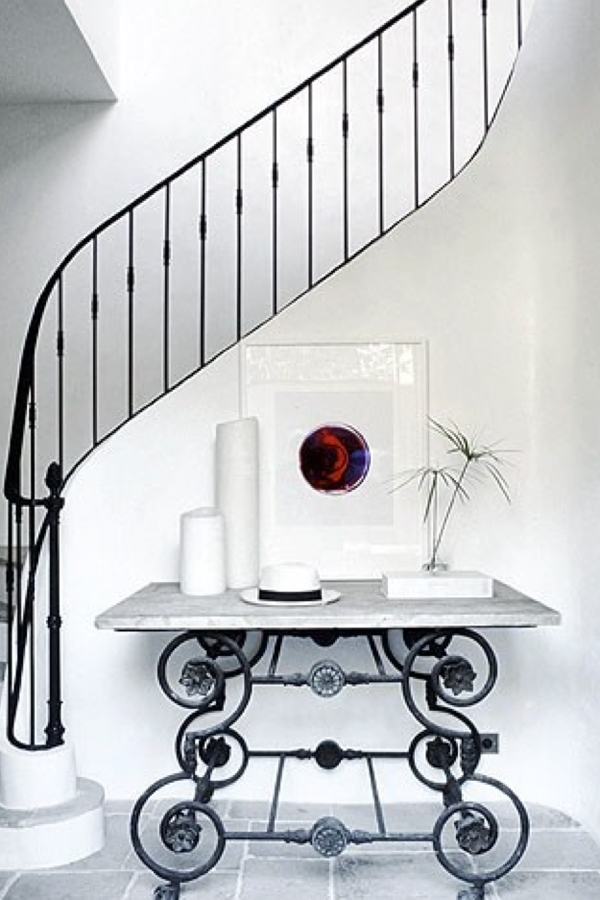
Image: Courtesy of the author
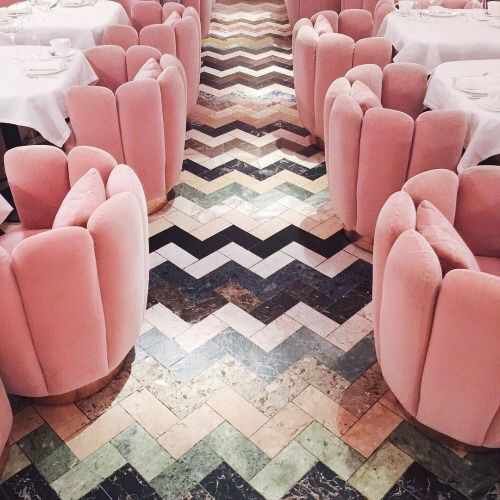
Wall-to-wall: Add some panelling or mouldings to your walls, and paint them a warm shade of white. The panelling or mouldings need not be very intricate, and can simply be glued directly onto the walls. This is an effective way to add an instant dose of elegance to your space.
Vintage glam: Incorporate one or two pieces of vintage furniture in your scheme for a dash of shabby chic. It can be something beautifully crafted in a natural material: an old glass chandelier, a fifties oak sideboard, or a round rattan mirror.
Pro tip: Move in with a French boyfriend or girlfriend!
Image: India Mahdavi's Charlotte Chair designed for Sketch in London, courtesy of author
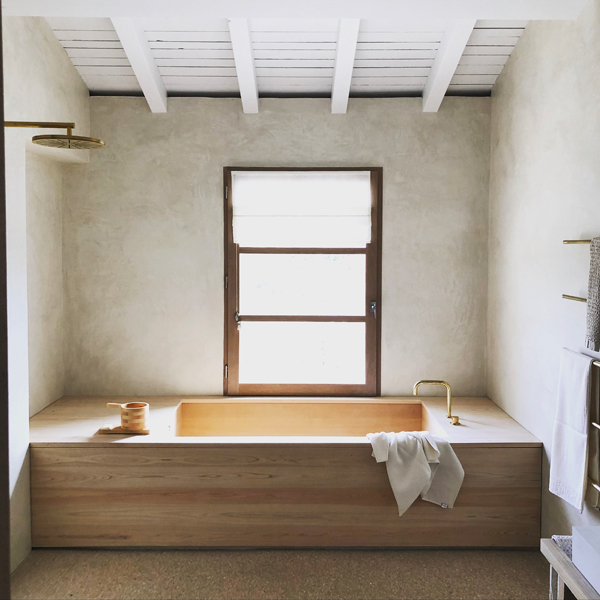
Pierre Yovanovitch: A predominantly residential interior designer, I appreciate his architectural sense of place, bold use of black and white, as well as his reinvented version of Art Deco interiors.
India Mahdavi: A free spirit and an inventor of her own design vocabulary, who is always at the forefront of the design world. She has a very strong sense of colour, but her colour palette is mostly a delicate and subtle one. I like the fact that she infuses a sense of fun in all her designs.
Image: Bathroom in Provence designed by Eve Mercier, courtesy of author
Nicolas Lefeuvre

See more: This 980 sqft Parisian home is French chic done right with patterns
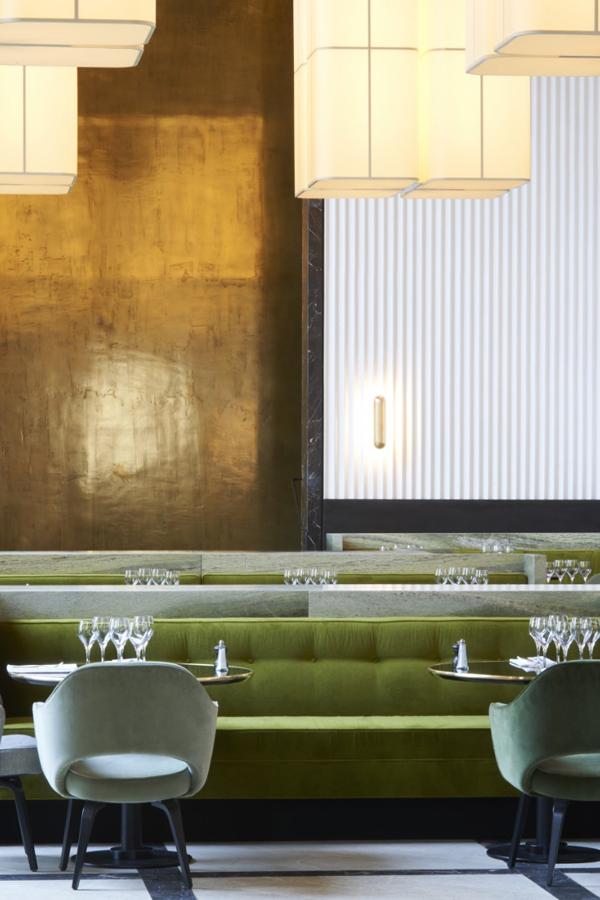
I see it as an uncontrolled messy mix of elegance, humour, verve, sharpness, and cute indolence. It can be inborn or natural, but has to be maintained!
Image: Monsieur Bleu Paris designed by Joseph Dirand, courtesy of the author
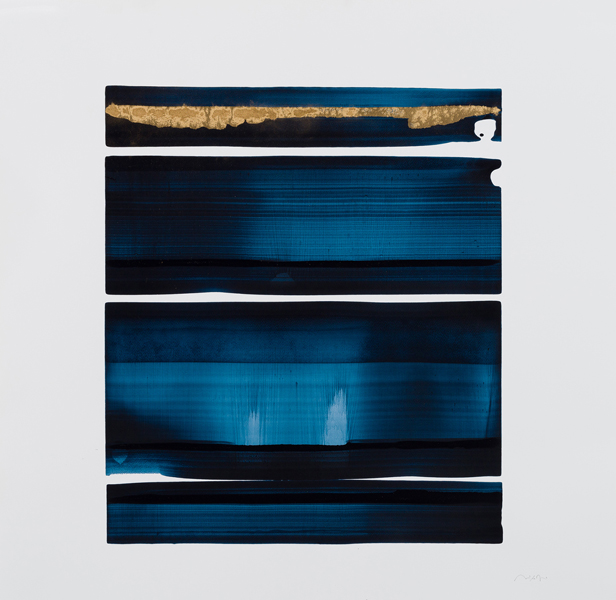
Clean slate: Avoid powerful colours on your walls. Just a touch of colour goes a long way – via cushions, art pieces or books. Keep the base simple.
Less is more: A clean and easy architectural layout works wonders for creating a blank canvas for your interior decoration. This allows you to have more fun when it comes to selecting your furnishings. Never try too hard to make an architectural statement.
Guiding light: Lighting is one of the most important components of an interior project, and is not to be overlooked. Bad lighting can immediately ruin even the most refined of homes. It's like terrible makeup on a beautiful lady.
Image: Land(e)scapes painting by Nicolas Lefeuvre, courtesy of author
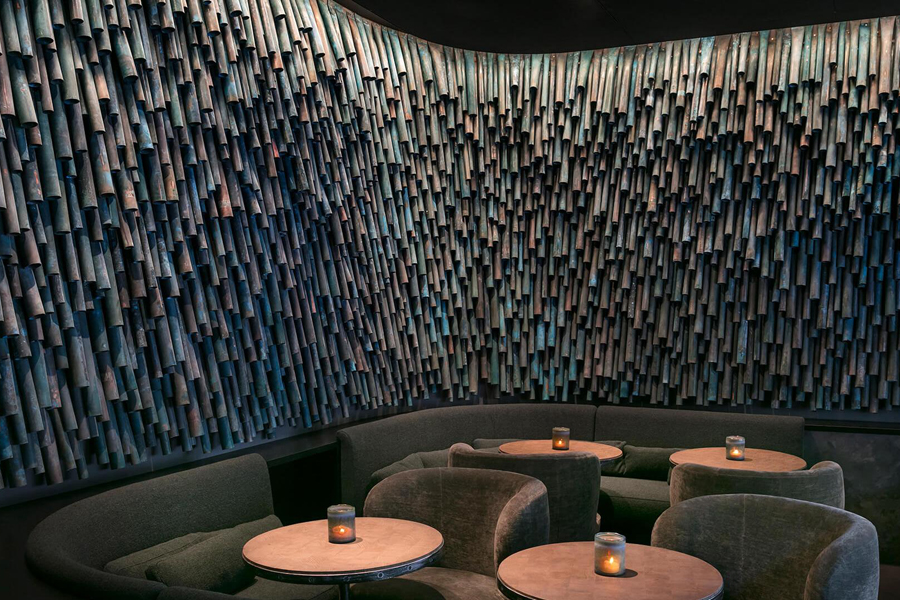
Joseph Dirand: One of France’s most important contemporary architects, I love his glamorous restaurant projects at Girafe and Loulou in Paris, as well as the private Parisian apartment in Varenne.
Raphael Navot: A fantastic multidisciplinary designer and master of creating and using custom-designed textures in his projects. His interiors combine traditional methods with contemporary savoir-faire, and feature raw and natural materials such as timber, metal, and silk.
Pierre Soulages: Once described as the world’s greatest living artist, this French painter, engraver, and sculptor is revered for his individual interpretation of light and black
Image: Raphael Navot's work at the Hotel National des Arts et Métiers in Paris, courtesy of the author
The post L’art de vivre: How to add French flair to your home appeared first on Home Journal.





